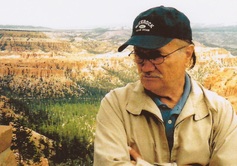
9. Emotional reactions occur spontaneously, but we can influence the course of our emotions through conscious effort by following our affections.
Rychlak differentiates between emotions and affections.
- Emotions are physiological, “part of the body’s organic machinery.”
- Emotions signal moods and cause us to make adjustments to our circumstances.”
- “We cannot always make sense of our emotions.”
- We try to put labels on our emotions: “I’m happy”; “I’m sad”; “I’m bored.”
- We also try to figure out the cause of our emotions; we may think we know what caused an emotion but we could be wrong.
- Through affections, we tend to evaluate our experiences as “like” or “dislike.”
- Affections are characteristics of the individual; we may have the same circumstances and yet have opposite affections, I like, you dislike.
- Through our affections, we can influence how we feel; we can arrange circumstances to be in line with our affection (for example, listening to music we enjoy to change our mood from negative to positive).
- “There will be times when the machinery of our emotions gets out of hand, but over the long run we have every right to expect that we can exert some affective control over it” (p. 265).
My take-aways:
Rychlak makes very important insights into our emotions and how they are related to how we come at life and how we can influence them. Understanding emotions should be part of leadership development and leader knowledge. I see four major points here for leaders:
- We can’t always make sense of our emotions, what we are feeling. Sometimes we just don’t know why we feel the way we do.
- And just because we think we know what is causing us to feel a certain way does not mean we are right. We may think we know but in actuality may not.
- As leaders we can create or rearrange circumstances, such as policies or procedures, that those who follow may like or dislike, thus potentially by design we can affect to some degree how those we lead feel.
- Sometimes leaders or followers may let “emotions get out of hand” but most people should be able to bring their emotions under control if they so choose.
Joe Rychlak loved the West. Image courtesy of L. Rychlak and used with her permission.
Rychlak, J. F. (1979). Discovering free will and personal responsibility. New York: Oxford University Press.
 RSS Feed
RSS Feed